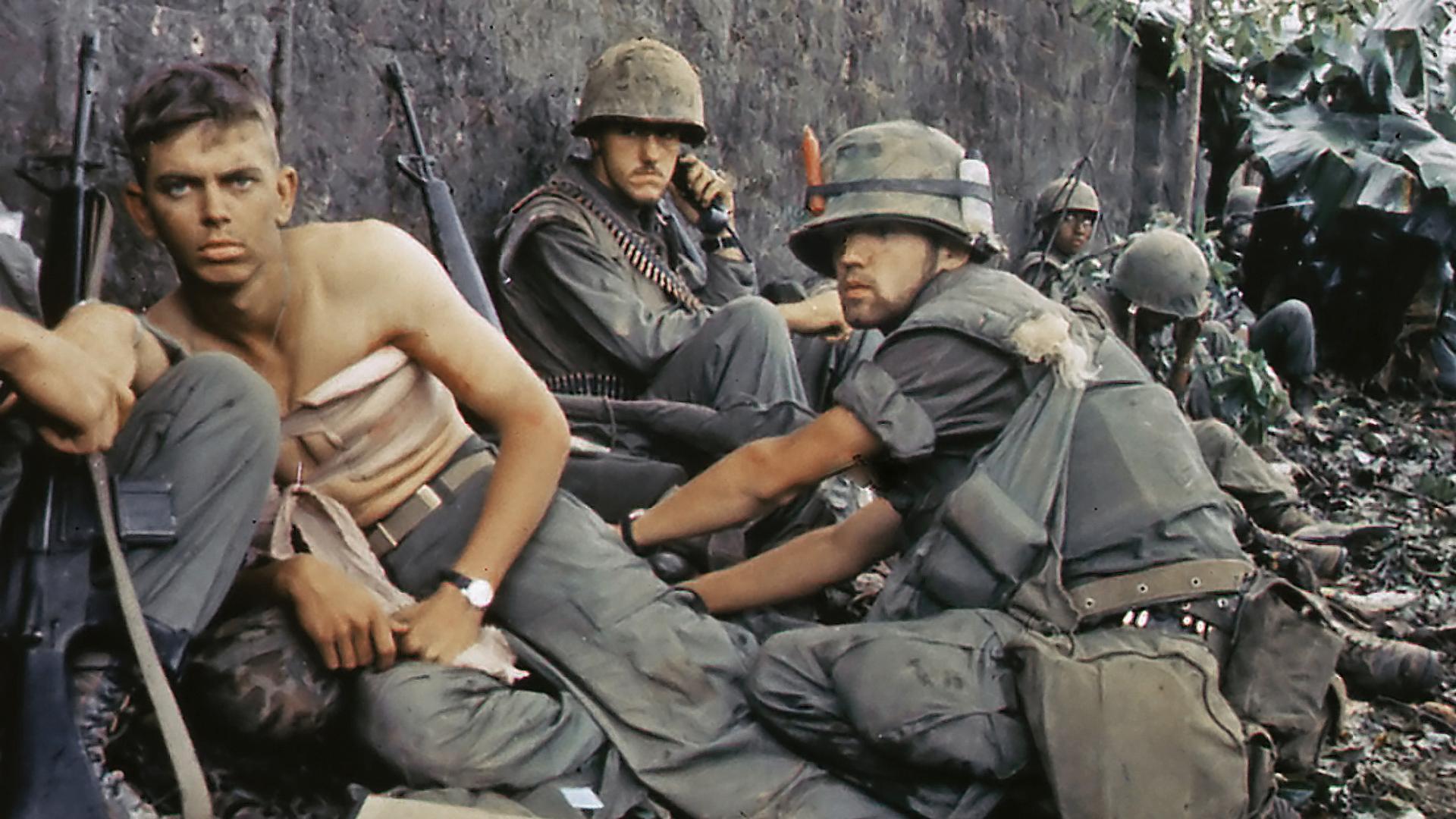A corpsman treats a wounded Marine in the city of Hue, Vietnam, in June 1968.
On Nov. 2, 1968, President Lyndon B. Johnson made a private phone call to a friend of Richard Milhous Nixon, and bluntly accused the Republican presidential candidate of treason.
Treason.
There was no doubt, said Johnson, that Nixon’s campaign team was trying to scupper peace talks aimed at ending the Vietnam War. They were afraid that peace in Vietnam would help Nixon’s Democratic rival, Hubert Humphrey, to clinch the election.
Johnson threatened to go public with his information. The election was just days away.
But Johnson never did go public. He received an emphatic denial from Nixon in person the next day. And perhaps more importantly, Johnson never had the definitive evidence he needed tying Nixon himself to the efforts being made by his campaign team.
A new discovery by historian John Farrell might well be the smoking gun that Johnson needed. It's published in The New York Times.
The peace process in 1968 was real. The Soviet Union had persuaded North Vietnam to come to the table, the US just needed to deliver South Vietnam. At the beginning of November, both sides made goodwill gestures to prepare for the talks. The Communists stopped shelling cities and halted attacks across the Demilitarized Zone between North and South Vietnam. Johnson ordered a halt to the massive US aerial bombing campaign. “We’ve had 24 hours of relative peace,” he said in that Nov. 2 call to Nixon’s friend, Sen. Everett Dirksen (R-Ill.). “If Nixon keeps the South Vietnamese away from the conference, well, that’s going to be his responsibility. Up to this point, that’s why they’re not there.”
Farrell has found notes kept by close Nixon aide H.R. Haldeman. Haldeman later became Nixon’s chief of staff and was one of those later found guilty in the Watergate conspiracy trial.
On Oct. 22, 1968, Haldeman made notes of a phone conversation with Nixon. Several of these appear to show Nixon himself talking about ways to scupper the peace process. He even asks, “Any other way to monkey wrench it?” and, “Anything RN can do?”
One instruction that Haldeman noted from his boss: “Keep Anna Chennault working on SVN” — South Vietnam.
That’s a reference to Republican doyenne Anna Chennault, the widow of a World War II hero who’d fought in East Asia. She had very close ties to the government of South Vietnam, and was identified by US intelligence as one of the principal people trying to persuade the South Vietnamese to delay or boycott the peace talks in Paris.
One intercepted message from her to the South Vietnamese embassy was said to be from “her boss,” and it read, “Hold on, we are gonna win.”
To his dying day, Nixon insisted he had nothing to do with efforts to sabotage the 1968 peace talks. “My god,” he told Johnson on Nov. 3, 1968, “I would never do anything to encourage [South Vietnam] not to come to the table.” Farrell argues that that too was a lie, writing in the Times that "given the human lives at stake and the decade of carnage that followed in Southeast Asia, [his efforts to hurt the peace talks] may be more reprehensible than anything Nixon did in Watergate."
Historians surveyed by the Times show a range of responses to Farrell’s revelation. Some have reservations, but most agree with author Ken Hughes that Farrell has found the long-sought “smoking gun.”
Historians acknowledge that Johnson was himself using the peace talks as a tool to help Democratic candidate Humphrey. That’s distasteful, but not illegal for the executive office.
But as a private citizen, candidate Nixon would have been in violation of federal law if proven to have taken steps to “defeat the measures of the United States.” Both men were willing to use issues of war and peace as a mere political football.
Of course, it’s not clear that the talks in Paris could have led to peace or even a temporary cessation of hostilities. Many historians say it’s implausible. Tragically, the world never got a chance to find out.
The South Vietnamese did boycott the talks, which collapsed. The war went on.
More than 21,200 Americans died in Vietnam and elsewhere in Southeast Asia after the collapse of the Paris peace talks, along with hundreds of thousands of Vietnamese.
